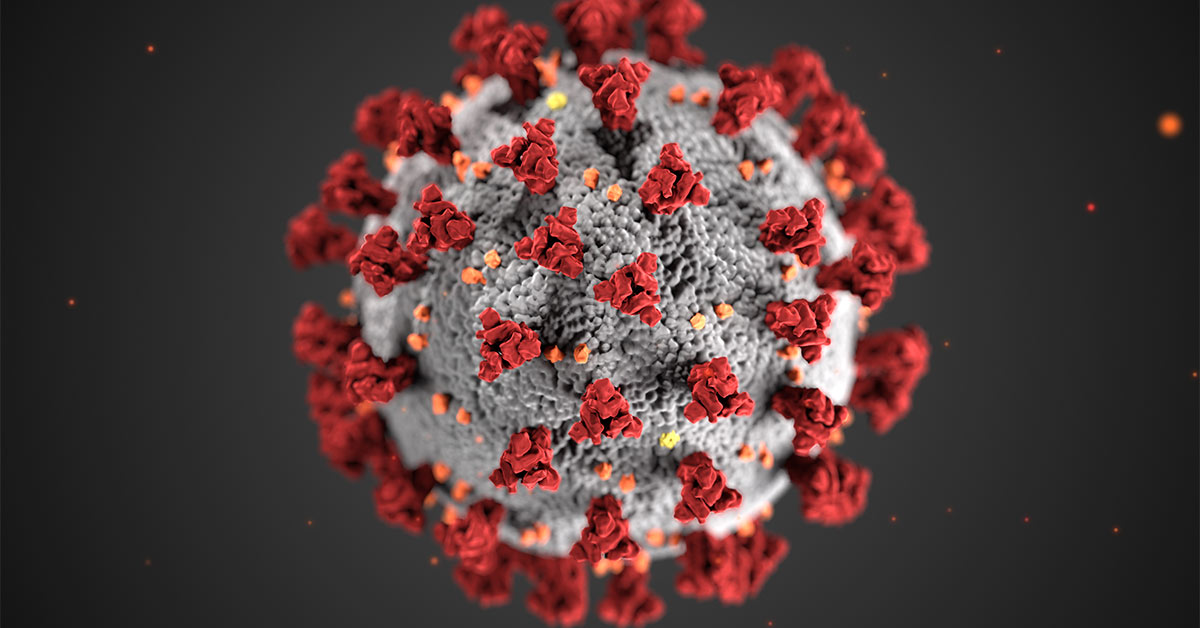
What Every Cancer Patient Should Be Asking About Coronavirus
-
Updated May 13, 2021
The coronavirus disease 2019 (COVID-19) is a respiratory illness caused by the virus SARS-CoV-2. Since the first confirmed case in late January 2020 in Wuhan City, China, over 159 million cases have been reported worldwide. Shortly after the first case was detected, the Centers for Disease Control (CDC) declared the outbreak of COVID-19 a global public health emergency.
The illness has become widespread, having a strong impact on many countries (including the United States). Because of this, it is important to differentiate fact from fiction and seek information from sources you can trust.
For cancer patients and their families, there are likely many questions at the forefront of their minds. Margaret von Mehren, MD, a medical oncologist and Chief of the Division of Sarcoma Medical Oncology at Fox Chase, weighs in with answers to some of the more common questions we’ve heard:
What exactly is the coronavirus?
Coronaviruses are part of a large family of viruses common in humans and many different species of animal. The type that has recently been in the news is known as coronavirus disease, or COVID-19.
How does the coronavirus spread?
COVID-19 spreads when an infected person breathes out droplets and very small particles that contain the virus. Others become infected when they breathe in these droplets and particles or they enter their eyes, noses, or mouths. In some circumstances, the droplets and particles may contaminate surfaces, making it easy for someone to accidentally get the virus on their hands and touch their eyes, nose or mouth.
It’s important to know that people who are closer than six feet from the infected person are most likely to get infected.
Learn more about transmission of the coronavirus from the CDC
What are the symptoms? What should I be looking out for?
Reported symptoms of COVID-19 are:
- Fever or chills
- Cough
- Shortness of breath or difficulty breathing
- Fatigue
- Muscle or body aches
- Headache
- New loss of taste or smell
- Sore throat
- Congestion or runny nose
- Nausea or vomiting
- Diarrhea
Can I still receive cancer treatment if I have the symptoms above?
The answer to this will vary depending on the individual and will depend on the severity of the symptoms that you are experiencing.
If you are having any of the symptoms above or have been in contact with someone known or suspected of having COVID-19, please call your care team to let them know. Similar to if you were having symptoms of other illnesses such as the flu, they will be able to assess the situation and guide you to the best next steps.
Fox Chase has developed the ability to quickly test for the virus that causes COVID-19 and we are testing all patients prior to surgery or admission, as well as before other treatments when clinically appropriate. If you have already been tested for the virus that causes COVID-19 somewhere other than Fox Chase, please contact your care team to make them aware of this.
What can I do to prevent myself from getting the coronavirus?
The best ways to prevent infection are to get the COVID-19 vaccine and take precautions that you already practice to avoid the spread of illness, such as:
- Avoiding close contact with people who are showing symptoms (particularly fever and cough) and practicing social distancing
- Avoiding touching your nose, mouth, and eyes
- Washing your hands frequently and vigorously with soap and water for 20 seconds, especially after going to the bathroom and before eating
- Cleaning and disinfecting frequently touched objects and surfaces using a regular household disinfectant
Am I more at risk for contracting COVID-19 because I have cancer?
People with cancer are at the same risk of contracting COVID-19 as the rest of the general population. However, those who are immunosupressed due to the stage or type of cancer they have or the treatments they are undergoing may be at higher risk of complications from COVID-19.
Why is everyone at Fox Chase wearing a mask?
Fox Chase is determined to keep COVID-19 out of our center.
Even if someone isn’t showing symptoms, they could be asymptomatic carriers. This means that they could be infected with this coronavirus but not be showing symptoms yet. To protect our patients and staff from these and other symptomatic cases, Fox Chase is now requiring everyone in our facilities to wear a face mask. The safety of our patients and minimizing their risk of exposure to COVID-19 is our top priority, and this is one of the many steps we are taking to protect our patients and staff.
I am the caregiver of someone with cancer. Are there any additional precautions I should be taking?
The role of a caregiver is extremely important. Whether you live with someone who has cancer or regularly care for them, it is important to remain vigilant about your own health. Making sure to practice good hygiene and taking the precautions listed above is important. Remember, you can’t take the best care of them if you aren’t healthy yourself.
Where can I find up-to-date information about the coronavirus?
Trustworthy resources on COVID-19 include the following websites:
Fox Chase Cancer Center is closely monitoring developments related to COVID-19 and is actively taking measures to safeguard our patients, staff, faculty, and volunteers. We have put specific precautions in place for the safety of our Fox Chase community.
If you have any questions related to COVID-19 and your health, please reach out to your care team.
If you are experiencing flu-like symptoms or have come in contact with a person who has a confirmed or suspected case of COVID-19, please call nurse triage at 215-728-4300 prior to your (next) medical appointment.
Reviewed by Nancy Warren, Infection Control Manager, Fox Chase Cancer Center
